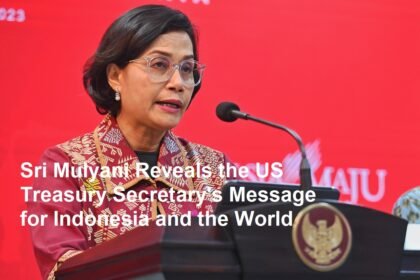Definition and History of Chaebol
Chaebol is a multinational business conglomerate that developed in South Korea. The term comes from the Korean words ‘chae’, which means rich, and ‘bol’, which means clan. They emerged as a result of the economic policies implemented by the South Korean government over the past decades to maintain stable economic growth and accelerated industrial development. Chaebol have become one of the main pillars in the South Korean economy by having an important influence in the transformation industry to services. The Chaebol concept emerged in Korea in the 1960s when the Park Chung-hee Government began to prioritize economic development. Governments recognize that they need an integrated business structure to stimulate growth. Therefore, they provide their monetary support with certain conditions to a number of large companies to help them develop rapidly and create new jobs.
As time goes by, Chaebol grows rapidly and experiences several stages of development. Initially, the focus was on the export of manufactured goods and the creation of a domestic industrial base. Then, in the 1980s, the role of the Chaebol underwent a transformation as the focus shifted to diversification and global brand formation. At this stage, many Chaebol began to venture into the high-tech sector and established research and development centers. In the 1990s, Chaebol played an important role in South Korea’s economic development after World War II. They are also the main pillars in making South Korea a world economic power. However, over time, several cases of business failure and problems of poor corporate governance have come to the attention of the government and the public. This resulted in the South Korean government launching Chaebol reforms, aimed at increasing efficiency and transparency in their business practices. Despite this, the Chaebol still plays an important role in the South Korean economy to this day.
Chaebol Organizational and Business Structure
Several companies that fall into the Chaebol category, such as Samsung, Hyundai, and LG, have grown into global giants in recent decades. They play an important role in the South Korean economy and have many business branches in various industrial sectors. Samsung, for example, is one of the most well-known Chaebol companies. Although known as a producer of consumer electronics, such as smartphones and televisions, Samsung also operates in the chemical, insurance and civil construction sectors. Hyundai, on the other hand, is one of the world’s largest automakers and also has divisions that include logistics, steel, and information technology. LG is no less great with its main businesses in the electronics, petrochemical and telecommunications sectors.
Chaebol’s organizational and business structure is very complex as this conglomerate manages various industrial sectors. This structure generally consists of a core company or holding company that owns majority shares in subsidiary or affiliated companies that manage various strategic businesses. Chaebol usually builds a synergistic ecosystem between these companies to create maximum operational efficiency. Even though Chaebol has a complex conglomerate structure, effective management and investment wisdom are critical to its success. Chaebol companies often overhaul their business organizations, restructure low-performing industrial sectors and explore opportunities in new sectors. This provides Chaebol with the flexibility necessary for adaptation in a rapidly changing business environment, as well as maintaining their innovative edge and competitiveness on the global stage.
Chaebol Influence on Economics and Politics in Korea
Chaebol play an important role in the Korean economy by making significant contributions to national economic growth. Since the early 1960s, the Chaebol have been involved in the country’s economic transformation, from industrialization to infrastructure development. In recent decades, Chaebol such as Samsung, LG, and Hyundai have become key players in South Korea’s global expansion and made the country one of the world’s major economic powers. The role of Chaebol in the Korean economy is influenced by their strategy in adapting to global market changes and taking advantage of government policies involving them. Chaebol are known for their ability to diversify their business and focus on exports, which is an important factor in South Korea’s GDP growth. Meanwhile, the government’s dependence on industrial power resulted in active support for the development of the Chaebol, including in terms of disbursement of funds and fiscal policies for investment and research and development activities.
The relationship between the Chaebol and the Korean government is an interesting topic for further research, as they are both interdependent. The government has provided various incentives and policies that support the growth of Chaebol, such as reduced taxes, preferential access to resources, and marketing support. On the other hand, the Chaebol also has heavy political influence, especially in the policy-making process in Korea. The government often sought support and suggestions from Chaebol leaders to develop economic and industrial policies. However, the close relationship between the Chaebol and the Korean government has led to some challenges and criticism. One of them is the issue of transparency in political and economic decision making. It is feared that the strong political influence of the Chaebol could lead to the country’s dependence on a group of large companies, limiting the space for small and medium-sized businesses to develop. In addition, the Chaebol’s involvement in political corruption scandals has also been in the spotlight and raised concerns about the integrity of the political and economic system in Korea. To address this problem, a number of reforms have been proposed, such as increased transparency in corporate ownership structures and stronger oversight of the relationship between the Chaebol and the government. Implementing these reforms is critical to creating a more competitive and fair business environment and reducing the risk of future political and economic instability.
Controversial Issues and the Future of Chaebol
Controversial issues arising from Chaebol business practices in South Korea have become a major highlight in the country’s economic and social context. The chaebol, which are conglomerates of large family businesses such as Samsung, Hyundai, and LG, have a significant influence on the Korean economy. However, their dominant business practices have attracted criticism regarding their impact on competition and innovation in the Korean market. Criticism of Chaebol includes that they have great control over important industrial sectors, thereby inhibiting small and medium-sized competitors from developing. This dominant business approach can also lead to stagnation of innovation in the market because small companies do not have the opportunity to grow and provide new ideas. In the long term, this could reduce Korea’s competitiveness in the global market and hinder technological progress.
As time goes by, Chaebol face new challenges in maintaining their relevance in an ever-changing world. Issues such as environmental sustainability and climate change are a global focus today. Chaebols need to display a stronger commitment to environmental and social sustainability in order to maintain their position as major players in international markets. In addition, they must be more responsive to trends and changes occurring in the industry. In addition to global challenges, the Korean government is also trying to reduce the influence of the Chaebol in the country’s economy. New regulations and government policies increasingly require Chaebol to be more transparent in their business practices and provide more opportunities for small and medium-sized companies to grow. To survive in the future, Chaebol must go through a transformation that involves adapting to regulatory changes, increasing transparency, and creating a more inclusive and fair business ecosystem.









